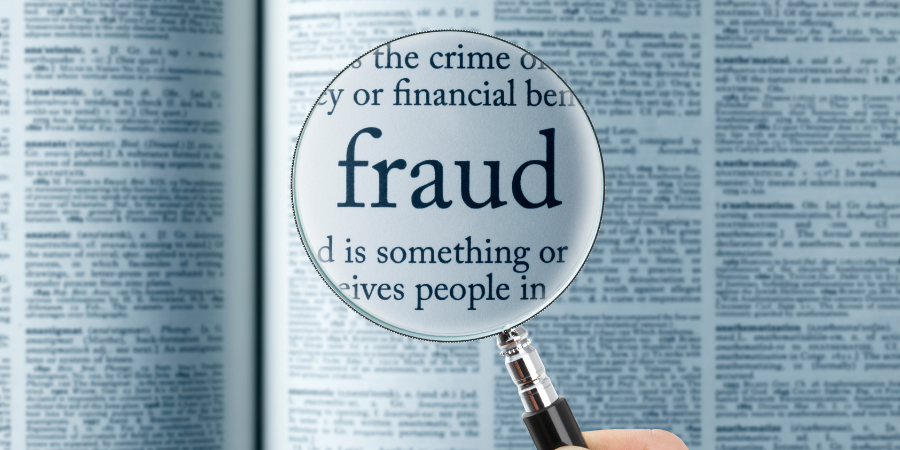If you are considering shopping for a retail energy contract or energy plan in a deregulated state, then you should be aware of the top energy-buying mistakes made by businesses like yours. Avoiding these energy-buying pitfalls can help to save you time, headaches, and money in more ways than one. In this article, we will cover the top mistakes made related to the following energy contract categories:
- Types Of Energy Rates
- Energy Contract Language
- Avoiding Energy Scams
- Using (or Not Using) An Energy Broker
Types Of Energy Rates
First, it’s important to know that there are many different types of energy plans available for commercial and industrial businesses. In fact, since energy usage varies depending on the type of business, finding an energy rate that suits your individual needs can save you lots of money in the long run. Here are some of the pitfalls to avoid.
Common Mistakes:
Most commercial customers simply elect to enroll in a fixed-rate energy plan without fully understanding the components of a fixed rate. In order to offer a fully-bundled fixed-rate plan, retail energy suppliers usually add extra risk margin into the rate in order to protect themselves from energy market fluctuations. Furthermore, even if your business uses power during less expensive, off-peak periods, you might be obligated to pay a premium for your fixed energy rate that can be much higher than if you had a custom-tailored plan.
What To Know:
The best course of action is to have an energy broker or consultant evaluate your business’s energy usage patterns to determine the best-fit energy plan. In some cases, a hybrid energy product that is a blend of fixed and index energy rates could save you more money than a standard fixed energy plan.
Energy Contract Language
Next, the details of your energy supply contract matter more than you know. Do not be fooled into thinking that all energy contracts are standardized. There are important differences and details that can make or break the way you are billed in the future. Here’s what you need to know.
Common Mistakes:
Many customers are not educated or aware of certain energy contract clauses that affect their rates. Contract language such as energy bandwidth clauses or material contract changes can drastically change how energy suppliers charge you for energy. In these examples, using more or less energy than what the supplier projects for your business could result in additional costs. Other important terms of the contract include dual vs. consolidated billing, early termination penalties or fees, and what happens if you cancel your contract early, move business premises, sell your business, or go out of business.
What To Know:
In order to ensure that your energy contract is not too one-sided, it’s always recommended to have legal counsel review the terms on your behalf. Some other tips include negotiating more favorable bandwidth or swing agreements, understanding how early termination fees are calculated, and defining the specific events that trigger a material breach of your energy contract.
Energy Fraud And Scams
It is paramount to be aware of the common energy scams, fraud, and problems with energy suppliers that are prevalent in the deregulated energy industry. These scams affect businesses across the country and can be quite costly when not caught early enough. There are, however, several steps you can take to correct problems and avoid energy fraud.

Common Mistakes:
Some of the more common energy scams include slamming or when suppliers switch your energy account to their service without your consent, being billed very high variable energy rates, unauthorized energy pass-through charges, and auto-renewal contract terms. These practices are common in the energy industry and should be avoided. Here are some things you can do to mitigate any risks.
What To Know:
In order to prevent your account from being slammed, you can request that a block be placed on your utility account(s) with the local utility company. If you want to avoid high variable charges, be sure to renew your energy contract on time and understand the exact date of expiration. To be protected from unwanted pass-through charges or contract auto-renewals, be sure to read the terms of your agreement carefully before signing. You may even want to consider hiring an energy broker to negotiate with energy suppliers on your behalf.
Using (or Not Using) An Energy Broker
Energy brokers can deliver a lot of value when shopping for energy rates. In addition to projecting energy price trends in 2023 or finding reputable suppliers for your energy needs, energy brokers can also manage problems, such as dropped utility accounts, or removing late payment charges from your energy bill. Here’s what you need to know when considering hiring an energy broker.
Common Mistakes:
Most commercial customers that do not use brokers think they can do it all on their own. They attempt to negotiate with energy suppliers, review contract terms, and even watch for energy market trends without the help of a professional. While some very large users of energy may have energy analysts on staff, the majority of commercial customers cannot afford this and would benefit from the services of an energy broker.
What To Know:
A professional energy broker has direct access to the nation’s leading energy suppliers and can easily obtain price quotes on your behalf. Furthermore, a good energy brokerage company will be able to guide you through the process of choosing a supplier and might even have an inside track on more reputable energy suppliers compared to others. Energy brokers will help you to understand and negotiate the terms of your supply contract and can even come to your assistance when issues arise with the energy supplier.
Need Help Buying Energy?
In summary, there are many important factors to consider when choosing an energy supplier for your business. And, one can benefit handsomely from using the services of a reputable energy brokerage organization with a successful track record. Our team of energy brokers has over 100 years of combined experience negotiating the purchase of energy on behalf of our commercial customers. Contact us today to get the help you need.
Lessons Learned From Two Decades Of Energy Deregulation
Energy deregulation has transformed the U.S. energy landscape over the past two decades, introducing both opportunities and challenges for businesses and consumers. While deregulated markets have driven innovation, increased renewable energy adoption, and created competitive pricing structures, they have also faced regulatory scrutiny, market volatility, and consumer protection concerns. As the energy sector continues to evolve, policymakers are refining deregulation models to better support renewable energy integration, capacity market stability, and consumer transparency.
Real-Time Energy Analytics: Transforming Energy Management For Utilities And Businesses
Real-time energy analytics is transforming how businesses and utilities manage energy, offering immediate insights into consumption, demand forecasting, and grid performance. With the right data collection and analysis tools, companies can reduce costs, optimize efficiency, and support sustainability goals while grid operators enhance reliability and integrate renewable energy more effectively.
Variable Renewable Energy (VRE): Managing Grid Integration Of Wind and Solar Power
Variable renewable energy (VRE) is revolutionizing the power grid, but integrating wind and solar into energy markets presents challenges in grid stability, forecasting, and transmission constraints. As businesses and utilities look for solutions, advancements in storage, demand-side management, and grid modernization are helping bridge the gap for a more resilient and efficient energy future.
Grid Parity: The Turning Point In The Energy Transition
Grid parity represents a pivotal shift in the energy industry, where renewable energy costs align with or fall below conventional energy prices. As this milestone reshapes energy procurement and market dynamics, businesses must adapt to new opportunities in renewable integration and long-term energy strategies.
Navigating Natural Gas Regulatory Shifts: Key Changes & Market Impacts
As natural gas regulatory shifts reshape the energy market, businesses must navigate evolving policies, pricing fluctuations, and sustainability mandates. Understanding these regulatory changes in the natural gas industry is essential for companies looking to manage costs, optimize contracts, and stay compliant in an increasingly complex energy landscape.
Building Trust: What Commercial Energy Clients Expect from Suppliers
When choosing an energy supplier, commercial customers seek more than just competitive pricing; they prioritize transparency, reliability, and long-term value. With evolving market complexities and regulatory changes, businesses must navigate supplier relationships carefully to ensure they receive fair pricing, ethical service, and contract flexibility.




